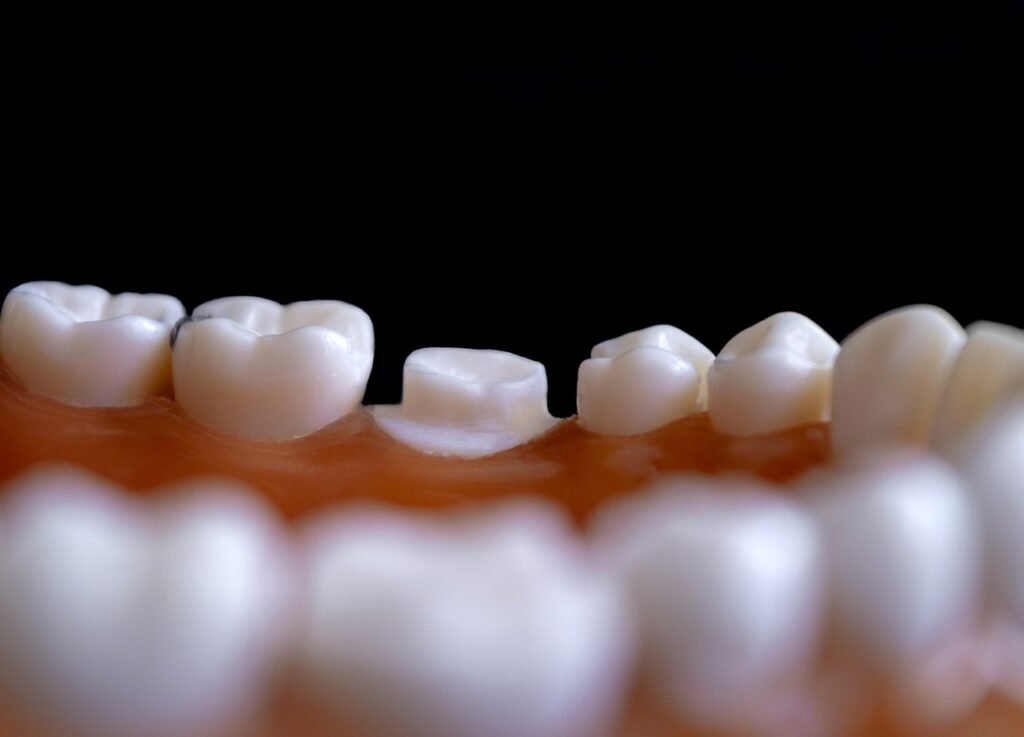
Intro
Pregnancy is a transformative time that brings about a myriad of changes, both exciting and challenging. As expecting mothers navigate through these changes, they often explore natural remedies and supplements to ensure a healthy pregnancy. One such remedy that has garnered attention is apple cider vinegar. But what exactly are the benefits and risks associated with using apple cider vinegar in pregnancy? Let’s explore the good, the bad, and the tasty aspects of incorporating this popular household staple into your prenatal routine.
What Exactly Is Apple Cider Vinegar Anyway?

Ah, apple cider vinegar, the magic elixir that’s got everyone from your health nut neighbor to your grandma raving.
So what’s all the fuss about? Apple cider vinegar, or ACV if you’re hip, is essentially fermented apple juice.
Think of it as apple juice’s cooler, tangier cousin who went to study abroad and came back all sophisticated.
Here’s the lowdown: The journey to ACV starts with good old apples.
These apples get crushed into a pulp, which is then introduced to yeast.
The yeast works its magic, converting the sugars in the apple juice into alcohol.
But we’re not done yet!
Next up, bacteria are brought into the mix to ferment the alcohol into acetic acid.
Voilà! You’ve got yourself some apple cider vinegar.
This stuff has been praised for centuries, and not just because it makes a killer salad dressing.
It’s touted for its digestive benefits, its potential to balance blood sugar, and even its role as a natural disinfectant.
But wait, there’s more! Ever heard of an ACV detox?
Yup, people are drinking this stuff to “cleanse” their systems.
Whether it works or not, well, the jury’s still out on that one.
And let’s not forget about the mother—no, not your mother, the mother of vinegar.
This cloudy, cobweb-like substance floating around in your bottle of ACV is packed with proteins, enzymes, and friendly bacteria.
It’s basically the probiotic powerhouse of your vinegar.
So, there you have it.
ACV might look like regular old vinegar, but don’t let its humble appearance fool you.
This tangy tonic has a storied history and a reputation for being the Swiss Army knife of natural remedies.
Drink up—just don’t forget to dilute!
Is It Safe To Consume Apple Cider Vinegar During Pregnancy?

When it comes to apple cider vinegar during pregnancy, safety is the name of the game.
Picture this: you, sporting a fabulous baby bump, wondering if ACV is your new best friend or just another passing fad.
Well, good news!
For most pregnant women, apple cider vinegar, when consumed in moderation, is generally safe.
But, here’s the kicker—you gotta go pasteurized.
Why, you ask?
Pasteurization zaps away any nasty bacteria that could spoil your ACV party.
Sure, it might lose a teeny bit of its nutritional oomph, but better safe than sorry, right?
Now, don’t go chugging it straight from the bottle like it’s your morning OJ.
This tangy potion is pretty potent.
The golden rule?
Dilution, darling.
A tablespoon in a glass of water or your favorite juice should do the trick.
Oh, and a heads up—always check in with your healthcare provider before making any ACV commitments.
One more thing: moderation is key.
You don’t want to turn into a vinegar aficionado overnight.
Start small and see how your body reacts.
After all, you’re eating for two now, and one of you is quite the critic!
So, next time you’re at the grocery store, eyeing that bottle of apple cider vinegar like it’s the Holy Grail, just remember: a little bit of caution goes a long way.
Possible Benefits Of Apple Cider Vinegar During Pregnancy

Let’s dive into the potential perks of apple cider vinegar during pregnancy.
First up, digestion.
Ah, the joys of pregnancy-induced digestive woes.
Some studies suggest ACV can help your body process fats and sugars more efficiently, which is basically a fancy way of saying it might save you from some of those less-than-glamorous digestive moments.
A 2016 study demonstrated that apple cider vinegar could modify digestive enzymes in animals, enhancing the digestion of fats and sugars. Score one for ACV!
But wait, there’s more.
ACV has also been linked to blood sugar regulation.
Imagine cruising through your day without those dramatic sugar spikes and crashes.
Some research hints that ACV could help stabilize blood sugar levels, making it a potential ally in managing cravings and keeping your energy levels steady.
Let’s not forget about the immune system.
Pregnancy can sometimes feel like a nine-month-long battle with the sniffles.
ACV’s antimicrobial properties might just give your immune system that extra boost it needs.
While it’s not a miracle cure, it can be part of your arsenal against common bugs and germs.
And if you’re feeling adventurous, try adding a splash of ACV to your skincare routine.
The acetic acid in apple cider vinegar is known for its antibacterial properties, which could help keep those pregnancy breakouts in check.
Just remember to dilute it first—your skin will thank you.
So, there you have it: from digestion to blood sugar to a potential immune boost, ACV is like the Swiss Army knife you didn’t know you needed during pregnancy.
Potential Risks and Side Effects of ACV During Pregnancy

Alright, let’s talk about the not-so-glamorous side of apple cider vinegar during pregnancy.
Sure, ACV sounds like the elixir of life, but like any good plot twist, there’s a catch.
First up, we’ve got tooth enamel erosion.
Yep, this acidic potion can be a bit of a bully to your pearly whites if you’re not careful.
Think of it as that kid in school who was great in small doses but turned into a menace if you hung out too much.
To avoid turning your dental check-ups into a horror story, always dilute ACV before sipping away.
Next on the list is throat irritation. Imagine drinking a liquid fireball—okay, maybe not that extreme, but close enough.
This tangy tonic can leave your throat feeling a bit, well, torched if you go overboard.
So, keep it mellow and mix it well.
And then there’s the good ol’ upset stomach.
Some folks find that ACV can be a bit harsh on their digestive system.
If you’ve got a history of gastrointestinal drama, proceed with caution.
This isn’t the time to play Russian roulette with your tummy.
But hey, we’re not here to rain on the ACV parade entirely.
Just keep these potential side effects in mind and don’t treat it like the fountain of youth. Remember, moderation is your best friend here.
So, if you’re thinking about making ACV your pregnancy sidekick, start slow and always check in with your healthcare provider.
Cheers to smart sipping!
Safe Ways to Use Apple Cider Vinegar When Pregnant

So, you’ve decided to give apple cider vinegar (ACV) a whirl during pregnancy, but you’re wondering how to do it without turning into a walking vinegar bottle.
Fear not, future mama, I’ve got you covered.
First off, let’s talk dilution.
Remember, ACV is like that one friend who’s awesome in small doses but overwhelming in large amounts.
Mix a tablespoon of apple cider vinegar into a big ol’ glass of water or juice.
Think of it as a zesty upgrade to your hydration routine.
Now, if you’re a culinary wizard, swap out your regular salad dressing for a homemade ACV version.
Just a drizzle over your greens can give your salad that extra zing while keeping things pregnancy-safe.
Feeling a bit more adventurous? Toss a splash into your smoothie. It adds a surprising tang that pairs well with fruits and veggies.
For those dealing with pregnancy skin drama, ACV isn’t just for sipping.
Use it topically!
Mix equal parts of apple cider vinegar and water, and dab it on your face with a cotton ball.
It might help keep those hormonal breakouts in check.
Just don’t forget to do a patch test first—you don’t need any unexpected skin surprises.
And hey, for the real ACV aficionados out there, you can even use it as a foot soak.
A bit of ACV in warm water can help soothe swollen feet, giving you a mini spa moment at home.
So, there you have it—plenty of safe and savvy ways to incorporate ACV into your pregnancy routine without going overboard.
Cheers!
Apple Cider Vinegar and Morning Sickness

Oh, morning sickness, the delightful pregnancy perk no one asked for!
If your stomach’s doing more flips than a gymnast, apple cider vinegar might just become your new BFF.
The idea here is that the acidity of ACV can help balance out those unruly stomach acids, giving you a bit of relief from the nausea monster.
Now, before you get all excited and start swigging it straight, remember our golden rule: dilution, darling.
A tablespoon of ACV in a big glass of water should do the trick.
Some brave souls even mix it with honey and ginger for an extra anti-nausea punch.
So, what’s the best time to drink this concoction?
Many moms-to-be swear by sipping it in the morning before breakfast.
Imagine starting your day with something other than the toilet bowl!
But remember, everyone’s body reacts differently.
While some may find this little potion a lifesaver, others might not notice much of a difference.
It’s a bit of a trial-and-error game.
Oh, and here’s a pro tip: if the taste of ACV makes you cringe, try adding it to a smoothie or a mug of warm tea.
It’s all about masking that tang while still getting the benefits.
Just don’t forget to chat with your healthcare provider before making any ACV commitments.
They’ll help you navigate this zesty journey safely.
Using Apple Cider Vinegar for Pregnancy-Induced Heartburn

Ah, heartburn—pregnancy’s way of reminding you that your favorite spicy foods are now your arch-nemesis.
But wait, could apple cider vinegar be the superhero you need?
Some brave souls swear by ACV for heartburn relief when traditional antacids just won’t cut it.
The theory? ACV might help balance the stomach’s pH levels, giving that fiery feeling a run for its money.
Here’s a fun fact: a 2016 study found that unpasteurized apple cider vinegar could help folks with heartburn resistant to over-the-counter antacids.
But before you dash to the store, remember—pasteurized is the way to go when you’re expecting.
Now, let’s talk tactics.
Dilution is key! Mix a tablespoon of ACV into a glass of water and sip slowly.
Don’t go downing it like a shot at a college party.
Trust me, your throat will thank you.
Feel like experimenting?
Some moms-to-be add a spoonful of honey to the mix for a touch of sweetness.
Honey’s natural soothing properties might just give your heartburn double the trouble.
And hey, if the idea of drinking vinegar makes you cringe, consider adding it to your food.
A dash in your salad dressing or a splash in your marinade can give you the benefits without the grimace.
So, if heartburn’s got you down, apple cider vinegar might be worth a try.
Just keep it safe and chat with your healthcare provider before adding this tangy twist to your routine.
Apple Cider Vinegar and Gestational Diabetes Management

So, you’ve been handed the delightful diagnosis of gestational diabetes—because, you know, pregnancy wasn’t already throwing enough curveballs your way.
Enter apple cider vinegar, the zesty elixir that might just add a bit of stability to your blood sugar rollercoaster.
Some research hints that a little ACV before meals could help slow down the absorption of carbs.
Translation: it might help keep those blood sugar levels from doing the cha-cha-cha.
Picture this: a tablespoon of ACV mixed into a big glass of water right before you dive into that carb-laden dinner.
The idea is that it could act like a mini speed bump for your blood sugar spikes.
But don’t go thinking ACV is a magic wand that’ll make you invincible against cupcakes and pasta.
It’s more like a little sidekick that needs a good superhero—like your prescribed treatment plan—to really shine.
Now, let’s talk strategy.
Keep it simple and start small.
You’re not aiming for a vinegar smoothie; just a tablespoon in water should do the trick.
And don’t even think about skipping those regular check-ins with your healthcare provider.
They’re the real MVPs in your gestational diabetes management journey.
Incorporate this tangy trick into your routine wisely, and who knows?
You might just find a bit of balance in the chaos of pregnancy cravings and blood sugar woes.
Cheers to finding harmony in the sweet and sour moments!
DIY ACV Skincare During Pregnancy

Pregnancy can be a rollercoaster for your skin, turning it into either a radiant glow-fest or a breakout battleground.
Enter apple cider vinegar (ACV)—your new skincare sidekick!
Thanks to its antibacterial properties, ACV is a popular choice for those DIY skincare warriors out there.
Some studies even suggest that the acetic acid in ACV can help combat acne, particularly when paired with certain light therapies.
Feeling adventurous?
Mix equal parts ACV and water, and dab the concoction onto your face with a cotton ball.
It’s like giving your skin a refreshing splash while potentially keeping those hormonal breakouts at bay.
But hey, don’t go wild—start with a patch test to make sure your skin doesn’t freak out.
Nobody needs any unexpected drama, right?
If your skin’s being extra sensitive, you might want to dial down the ACV and water ratio.
And for a little extra love, consider adding a few drops of essential oils like tea tree or lavender.
They not only smell amazing but also bring their own set of skin-loving benefits to the party.
So, grab that bottle of ACV, roll up your sleeves, and give your pregnancy skincare routine a zesty twist.
Your skin just might thank you for it!
Precautions To Take With Apple Cider Vinegar In Pregnancy

Let’s face it, when it comes to apple cider vinegar during pregnancy, you want to play it safe.
First off, always opt for pasteurized ACV.
Why?
Because unpasteurized stuff can be a bacterial party you definitely don’t want an invite to.
And remember, dilute, dilute, dilute!
A little ACV goes a long way, so mix a tablespoon into a large glass of water or juice to avoid torching your throat or doing a number on your stomach.
Start small and see how your body reacts—no need to go from zero to ACV aficionado overnight.
Keep an eye out for any unusual reactions, and don’t hesitate to put the brakes on if something feels off.
And, of course, always check in with your healthcare provider before adding this tangy tonic to your routine.
They’ll help you navigate this zesty adventure safely. Happy sipping, future mama!
